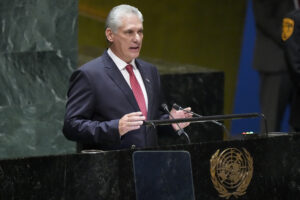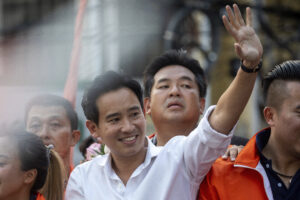How the Internet of Things Could Destroy the Welfare State
A long article at The Observer examines the regulatory possibilities of "smart" phones, cars and even carpet, and asks what's to become of governance if data and algorithms are setting the limits of human life.
A long article at The Observer examines the regulatory possibilities of “smart” phones, cars and even carpet, and asks what’s to become of governance if data and algorithms are setting the limits of human life.
In just one part of his essay, Evgeny Morozov, author of “The Net Delusion: The Dark Side of Internet Freedom,” says such technology would probably be used to maintain the two-tiered system of justice that protects the rich and punishes everyone else:
Algorithmic regulation could certainly make the administration of existing laws more efficient. If it can fight credit-card fraud, why not tax fraud? Italian bureaucrats have experimented with the redditometro, or income meter, a tool for comparing people’s spending patterns – recorded thanks to an arcane Italian law – with their declared income, so that authorities know when you spend more than you earn. Spain has expressed interest in a similar tool.
Such systems, however, are toothless against the real culprits of tax evasion – the super-rich families who profit from various offshoring schemes or simply write outrageous tax exemptions into the law. Algorithmic regulation is perfect for enforcing the austerity agenda while leaving those responsible for the fiscal crisis off the hook. To understand whether such systems are working as expected, we need to modify [Silicon Valley icon Tim] O’Reilly’s question: for whom are they working? If it’s just the tax-evading plutocrats, the global financial institutions interested in balanced national budgets and the companies developing income-tracking software, then it’s hardly a democratic success.
With his belief that algorithmic regulation is based on “a deep understanding of the desired outcome”, O’Reilly cunningly disconnects the means of doing politics from its ends. But the how of politics is as important as the what of politics – in fact, the former often shapes the latter. Everybody agrees that education, health, and security are all “desired outcomes”, but how do we achieve them? In the past, when we faced the stark political choice of delivering them through the market or the state, the lines of the ideological debate were clear. Today, when the presumed choice is between the digital and the analog or between the dynamic feedback and the static law, that ideological clarity is gone – as if the very choice of how to achieve those “desired outcomes” was apolitical and didn’t force us to choose between different and often incompatible visions of communal living.
Read the rest of Morozov’s fascinating article here.
— Posted by Alexander Reed Kelly.
Your support matters…Independent journalism is under threat and overshadowed by heavily funded mainstream media.
You can help level the playing field. Become a member.
Your tax-deductible contribution keeps us digging beneath the headlines to give you thought-provoking, investigative reporting and analysis that unearths what's really happening- without compromise.
Give today to support our courageous, independent journalists.






You need to be a supporter to comment.
There are currently no responses to this article.
Be the first to respond.